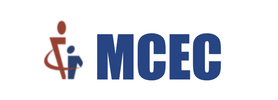MCEC Position on the Nomination of Betsy DeVos as Education Secretary
The Massachusetts Council for Exceptional Children recommends that the Senate reject the nomination of Betsy DeVos for Secretary of Education. As a state-level professional organization for educators, we firmly believe DeVos is not equipped to uphold the democratic principles essential for public education, and is therefore unfit to serve as the Secretary of Education. Specifically, our concerns include:
Betsy DeVos lacks experience in public education.
Betsy Devos has never taught or held an administrative role in a public school. This lack of experience makes her ill-prepared to address the unique needs of public education.
DeVos supports the expansion of charter schools and private schools.
Betsy DeVos supports the application of “free-market” principles to education reform, policies which undermine public education. DeVos believes that a competitive education market will lead to the creation of schools with higher success rates for students, despite the lack of supporting evidence.
DeVos’ support for the privatization of education may penalize students with disabilities.
Charter schools and private schools often do not adequately serve students with disabilities.
Students with disabilities have been historically underserved and discriminated against in charter and private schools.
The Massachusetts Council for Exceptional Children urges you to take action on the matter by visiting The Network for Public Education's toolkit and encouraging your Senator to vote ‘no’ for DeVos’ appointment as the Secretary of Education.
For more information, please visit the following websites for an overview of the issues relating to this nomination:
The Massachusetts Teachers Association
The Atlantic
The National Education Association
The New York Times
Betsy DeVos lacks experience in public education.
Betsy Devos has never taught or held an administrative role in a public school. This lack of experience makes her ill-prepared to address the unique needs of public education.
DeVos supports the expansion of charter schools and private schools.
Betsy DeVos supports the application of “free-market” principles to education reform, policies which undermine public education. DeVos believes that a competitive education market will lead to the creation of schools with higher success rates for students, despite the lack of supporting evidence.
DeVos’ support for the privatization of education may penalize students with disabilities.
Charter schools and private schools often do not adequately serve students with disabilities.
Students with disabilities have been historically underserved and discriminated against in charter and private schools.
The Massachusetts Council for Exceptional Children urges you to take action on the matter by visiting The Network for Public Education's toolkit and encouraging your Senator to vote ‘no’ for DeVos’ appointment as the Secretary of Education.
For more information, please visit the following websites for an overview of the issues relating to this nomination:
The Massachusetts Teachers Association
The Atlantic
The National Education Association
The New York Times
Policy Position on Ballot Question 2
The Massachusetts Council for Exceptional Children, following in the footsteps of many professional and educational organizations, recommends a “no” vote on ballot question 2, which concerns lifting the cap on Charter Schools in the Commonwealth. While there are a handful of exceptional charter schools operating in Massachusetts, question 2 would promote a significant expansion in charter school activity in the state without addressing several key and fundamental concerns within the current system, including:
For more information, please see Research and Policy News for an overview of the issues.
- Special education students are experiencing expulsion and lack of support in many charter settings, including charters’ inability to support students with complex and multiple disabilities, and engaging in “screening” practices which may keep students with disabilities out.
- Charter schools report higher disciplinary rates for students with disabilities and students of color. The Center for Civil Rights Remedies at UCLA found, in a sample of 374 charter schools, that 235 of the schools had suspended over 50% of their students with disabilities. Fifty percent of students of color attended highly segregated charter schools where the suspension rate for students of color was 25%.
- Charter schools are not subject to accountability with regard to a requirement for licensed teachers which is essential for all students, but in particular for students with disabilities.
- There is limited/weak evidence that charter schools outperform district public schools, and increasing numbers with low-performing designations. The manner of comparing school quality between charters and districts is flawed in that it does not make equal comparisons with regard to testing.
- The funding mechanism is deceiving, and while local “funds follow the student,”a clear return funding mechanism when students who return to the district schools. Additionally, charters are allowed to license with for-profit educational management organizations, which means that there is opportunity/profitability for private business in charter schools, using taxpayer dollars.
- Lack of oversight of local school committees and communities, despite the use of local funds to support charter schools, school committees have no ability to provide oversight for charter school leadership.
For more information, please see Research and Policy News for an overview of the issues.
Copyright © 2020 Massachusetts Council for Exceptional Children | All Rights Reserved
